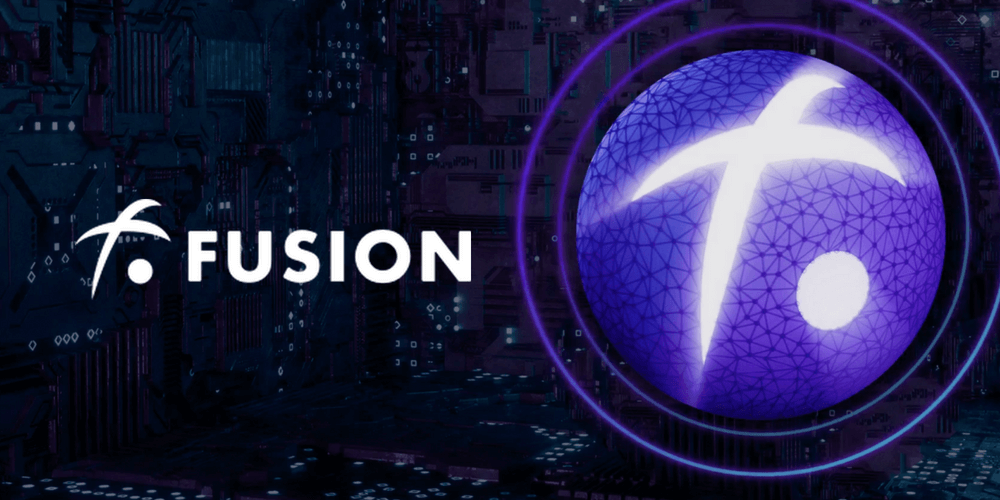
Singapore-based organization the Fusion Foundation is building a blockchain platform that allows crypto tokens to interact with one another and spur a new era in crypto finance, according to its creator Dejun Qian.
Fusion seeks to provide the much-needed infrastructure and technology for the space to evolve by enabling multiple tokens to be mapped onto the platform. These will be controlled by smart contracts and will be able to “speak to one another,” Qian told CoinJournal on the sidelines of Consensus 2018.
The idea behind Fusion is that the crypto token and cryptocurrency economy is highly fragmented with now more than 1,600 cryptocurrencies and crypto tokens, according to Coinmarketcap. Each has its own economy and specificities but they are currently working as isolated ecosystems.
“In the past two years, we’ve seen a lot of projects and cryptocurrencies come up,” Qian said. “But these different tokens cannot interact, talk to each other.”
“That’s why we are trying to develop a platform which can fuse all the tokens in one platform because each project has its own potential and design. We are trying to bring all projects together so they can talk to each other and build financial functions and solutions together.”
“On Fusion, tokens can talk to each other, they can be embedded into smart contracts with other tokens. And different players can also have some of their financial business progresses being automatically executed on the blockchain.”
One of Fusion key technologies is time-lock, which gives ownership of an asset for a defined period of time, he said.
“The token is split into two parts: one part can be used for a defined period of time, and the other part can be used from now until forever,” Qian explained, adding that this particular feature would make particular sense in areas such as loans, insurance, and asset management.
Fusion uses a hybrid consensus of proof-of-work (PoW) and proof-of-stake (PoS) to achieve security, efficiency, scalability and other aspects.
The Fusion architecture includes the ability for smart contracts to react to and transact with off-chain data, something currently not possible with existing smart contracts technology. This will allow implementation of a fuller and broader scope of financial functions, the organization claims.
Fusion has already secured US$12.3 billion in financial assets from three strategic partners, Qian told Reuters earlier this month. The secured funds came from FormulA, Carnex, and KuaiLaiCai, three companies operating in asset management, car financing, and restaurant supply chain management, respectively.
But for the platform to become successful, Fusion needs to attract much more tokens and projects, Qian said.
“It’s not easy. We need to have as many tokens as possible,” he said. “If we have ten billion or one hundred billion US dollar worth of tokens running on Fusion then more people will be attracted. They will feel like it is a safe platform.”
Another important element is to have an active developer community that will contribute to the platform. And for that, the Fusion Foundation will be in charge of promoting the platform and educating the public on the benefits of it, he said.
For Qian, a serial blockchain entrepreneur, Fusion is the opportunity for him to provide a blockchain platform that targets the financial services industry.
“I’ve been in this industry for over five years but from the very beginning I had the idea that blockchain technology was meant to serve the financial market,” Qian said. “Later on, we developed several projects but none of them was related to finance.”
These projects include Qtum and VeChain Thor, two platforms focused on decentralized applications and smart contracts for use in business applications such as supply chain management and inventory.
Qtum has established partnerships with Starbucks, and Chinese Internet and cybersecurity firm Qihoo, among others, while VeChain Thor has signed with the likes of PwC, Kuehne & Nagel, and BMW. These platforms’ crypto tokens now have a market capitalization of more than US$1 billion, respectively.
Despite the many opportunities that blockchain technology and crypto tokens bring to the table, there is still a long way to go before these become mainstream. These are still in the early stage, Qian said, and “even as industry players, we feel like digital tokens are not easy to manage,” he said, adding that cybersecurity and theft were a real concern.
In addition to the immaturity of the technology and the overall industry, Qian cited the lack of a regulatory framework for crypto tokens and blockchain technology as one of the key challenges.
“There are a lot of barriers in the blockchain world today: how to make the blockchain user-friendly, how to develop financial products for cryptocurrencies,” he said. “But most importantly, how are jurisdictions going to consider digital tokens, cryptocurrencies ownerships. And if there is a loss or theft, how to get them back.”

